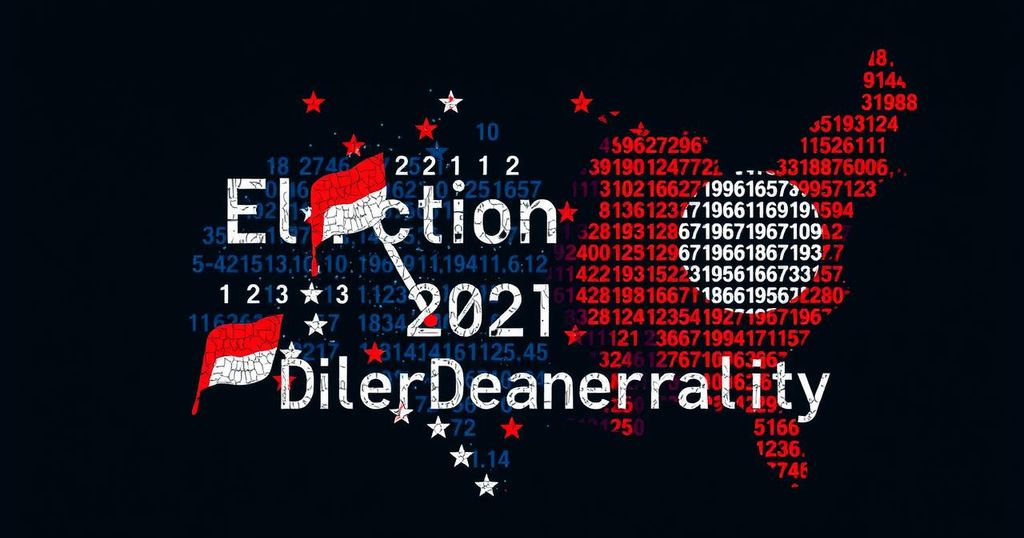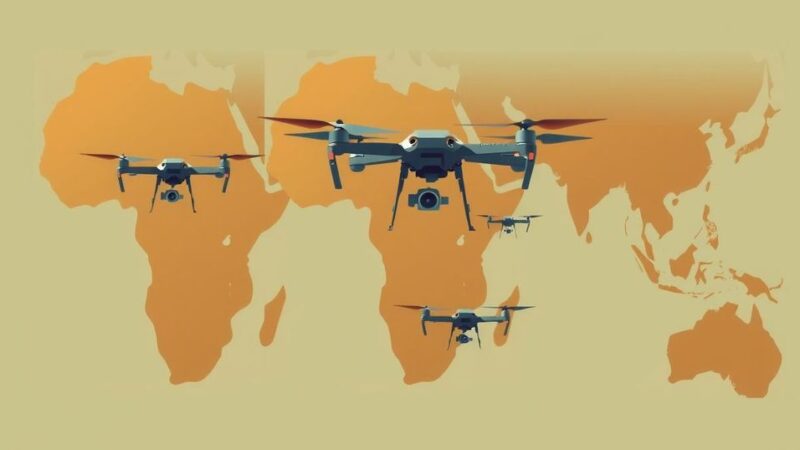The Microsoft Threat Analysis Center has issued a warning about ongoing disinformation campaigns from foreign adversaries, including Russia, China, and Iran, targeting the U.S. presidential election as November 5 approaches. The report indicates these efforts aim to sow distrust in election integrity, with each nation employing different tactics. As the election nears, the potential for AI-generated content to spread misinformation increases, necessitating vigilance among voters and political entities.
As the United States approaches the November 5 election date, the Microsoft Threat Analysis Center (MTAC) has issued an alert regarding the ongoing and evolving malicious disinformation campaigns directed by foreign nations such as Russia, China, and Iran. These campaigns, which are targeting the presidential election, should be taken seriously, despite a sense of inevitability surrounding them. In their fifth report, MTAC researchers underscore a variety of activities that are likely to incite doubts regarding the integrity of the election results once the voting has concluded. Despite the intensifying conflicts in the Middle East, the report highlights that Iran has maintained its disinformation efforts, focusing particularly on undermining the Trump campaign while attempting to fuel anti-Israel sentiments. Concurrently, Russian operatives have targeted the campaign of Kamala Harris, employing character attacks and generating AI content, including deepfake technology. In a strategic shift, Chinese entities have increased their focus on Republican candidates in down-ballot races, as well as sitting Congress members whose policies may conflict with Chinese interests. MTAC’s report asserts the near certainty that these foreign actors will endeavor to create division and distrust in the electoral process on and after Election Day. The report notes, “As MTAC observed during the 2020 presidential cycle, foreign adversaries will amplify claims of election rigging, voter fraud, or other election integrity issues to sow chaos among the US electorate and undermine international confidence in US political stability.” As the 2024 campaign season enters its concluding phase, the researchers anticipate an increase in AI-generated media, particularly because of the rapid dissemination of content that tends to occur during the crucial moments surrounding Election Day. The report explicitly states that Microsoft has identified Iranian actors probing election-related websites and media, indicating preparations for increasingly direct influence operations as Election Day approaches. Moreover, the activities of Chinese operatives in congressional races demonstrate an adeptness and comprehensive approach to influence operations. Recent campaigns have specifically targeted U.S. Representative Barry Moore and U.S. Senators Marsha Blackburn and Marco Rubio, promoting allegations of misconduct while endorsing rival candidates. Despite many disinformation campaigns failing to gain significant traction, MTAC emphasizes the profound implications of those narratives that do penetrate public discourse, contributing to the overall environment saturated with false and misleading claims. Clint Watts, MTAC’s general manager, remarked, “History has shown that the ability of foreign actors to rapidly distribute deceptive content can significantly impact public perception and electoral outcomes. With a particular focus on the 48 hours before and after Election Day, voters, government institutions, candidates and parties must remain vigilant to deceptive and suspicious activity online.”
The article addresses the complex landscape of foreign influence operations targeting the U.S. electoral process, specifically in relation to the upcoming presidential election. It notes the involvement of key countries such as Iran, Russia, and China, each employing varying strategies to affect public perception and undermine confidence in the election. The report highlights the importance of vigilance against misinformation, especially as the election nears, and underscores the historical impact of disinformation on electoral outcomes. It provides context for understanding the broader implications of foreign disinformation efforts on American democracy and political stability.
The Microsoft Threat Analysis Center has highlighted the significant risks posed by foreign disinformation in the context of the approaching U.S. presidential election. With Russia, Iran, and China intensifying their operations to influence voters and undermine election integrity, it is imperative for all stakeholders, including voters and institutions, to remain alert to potential deceptive activities. The historical patterns of interference demonstrate that misleading narratives can have lasting repercussions on public trust and electoral results. Therefore, widespread awareness and vigilance are essential to mitigate the effects of these foreign interference efforts.
Original Source: www.wired.com






